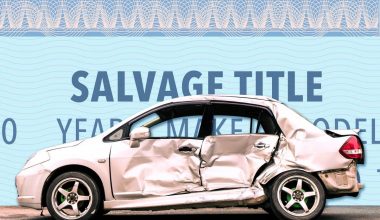There are numerous choices available for getting insurance. No matter what type of coverage you have, doing some research will often reveal that you have more possibilities than you imagined. Vendor liability insurance, for example, is an example of a lesser-known insurance option you may have. With that in mind, let’s look into vendor liability insurance and how it could be able to provide you with the security you need.
What is Vendor Liability Insurance?
Vendor liability insurance is a sort of insurance that covers vendors, concessionaires, and exhibitors all at the same time. This coverage is designed to protect persons who show and promote products and services at temporary sites and events. So, whether you are selling goods or services at tattoo shows or other similar events, vendor liability insurance coverage will assist ensure you are appropriately covered.
The Purpose Of Vendor Liability Insurance
Vendor insurance is intended to protect the holder from third-party litigation resulting from personal injury or property damage.
The capacity to conduct business
One key incentive for suppliers to get vendor liability insurance is that it increases business opportunities. Many farmers’ markets, ballparks, concert arenas, and other facilities with vendors require sellers to have insurance policies. Having vendor insurance, whether it’s food vendor liability insurance or another coverage, allows vendors to have more job options, which allows them to make more money.
Concerns about vendor liability
Vendors, believe it or not, are subject to severe liabilities. Vendors can sell anything from little trinkets to delectable delicacies. Different things pose varying degrees of risk of a prospective lawsuit. A vendor selling plastic toys, for example, has less liability than a vendor operating a food truck that requires a heating source that can inflict burns. Similarly, the placement of the vendor’s selling space is taken into account. A vendor in a fixed place is less likely to be held liable than a vendor with a moving cart that could collide with someone and injure them. Every vendor is vulnerable to some form of liability, regardless of their level of risk. Vendor insurance can shield policyholders from the financial consequences of a lawsuit.
What Does Vendor Liability Insurance Cover?
Vendor insurance provides policyholders with comprehensive coverage. It provides liability coverage for property damage, advertising injury liability, physical injury liability, personal injury liability, and litigation coverage. Some instances of how vendor insurance can be beneficial include:
- Accidents occur at any time. Vendor insurance provides the policyholder with the assurance that an accident will not result in financial ruin.
- Property damage can occur rapidly and without warning. If your vending cart is harmed or causes damage to someone else’s property, vendor insurance will pay for the repairs.
- Litigation coverage reimburses the policyholder for all settlement and court fees incurred in the case of a lawsuit.
Product liability concerns
Vendors must always be mindful of the potential liability that their products may cause. This is especially crucial for food vendors who sell to customers. Food products are constantly at risk of being contaminated with dangerous bacteria or other toxins if they are consumed. These problems are frequently invisible to the human eye. A consumer who becomes ill as a result of contaminated food purchased from a vendor can be a huge problem for the vendor. Medical expenditures resulting from foodborne disease can be exorbitant, and it may be the vendor’s responsibility to cover them. However, having vendor insurance in place might save the vendor from financial ruin.
Insurance Requirements for Vendors
Nearly every seller at an exhibition such as a tattoo show should have some type of insurance. Although you can choose the type of coverage you want, vendors should at the very least consider:
Accident Coverage: This provides coverage in the event of an accident caused by your employees or while under your company’s supervision.
Property Damage Insurance: You will also require coverage for property damage. This can apply to your personal property as well as customer property that may be harmed while in your care.
Coverage for Litigation: Finally, you should think about getting coverage to protect yourself from any lawsuits, settlements, and court fees.
Food Vendor Liability Insurance
Whether you own a food truck, run a catering company, or sell food at a farmer’s market, you may be looking for food vendor liability insurance to safeguard your funds from the hazards of selling food to people. Many insurance firms make it quick and simple to obtain coverage, allowing you to start your food business without delay.
Do You Need Food Vendor Liability Insurance?
Yes, if you sell food, you must have food vendor liability insurance. Food contamination can occur even with adequate handling and preparation. An employee could get hurt on the job or accidently damage the event site. These risks might lead to costly lawsuits that can ruin your company if you do not have adequate insurance coverage.
Certain coverages are even required by law—for example, most states require workers’ compensation insurance for food vendors with a certain number of employees, and most states require commercial auto insurance if you drive or park a food truck or trailer on public roads or deliver food in a vehicle.
The good news is that many companies provide reasonably priced coverage. Bundling numerous plans will typically result in a discount, and choosing a greater deductible can also help keep your costs cheap.
What Is Food Vendor Insurance?
Food vendor insurance is a collection of policies required to run a food business, such as a food truck or concession stand. Different sorts of food vendors may require different forms of coverage, however these are the most popular plans that most food merchants will require.
General Liability Insurance
General liability insurance covers legal bills and medical expenses incurred as a result of accusations that your company is to blame for property damage, personal injury, or advertising injury. It generally includes product liability insurance, which protects against food poisoning lawsuits. Food vendors are frequently required by event organizers to have general liability insurance.
Commercial Property Insurance
If you operate a business or have pricey equipment installed in a rented facility, you’ll require commercial property insurance. This covers the cost of repairing or replacing your property or equipment following a covered loss, such as a kitchen fire or vandalism. Because earthquakes and flooding are often not covered by commercial property insurance, some business owners may opt to acquire additional policies to protect against these hazards.
Business Owner Policy
Some food sellers may want to obtain a business owner’s policy (BOP), which combines general liability and commercial property insurance into one easy package. These policies frequently contain business interruption insurance, which helps replace net income if your company’s operations must be halted due to a covered loss.
Insurance for Inland Waterways
While a commercial property or business owners policy may cover equipment that remains on your company’s facilities, it will not cover items that you carry with you to events. Inland marine insurance assists in the repair or replacement of laptops, kitchen appliances, and other items while it is being carried.
Insurance for Workers’ Compensation
Workers’ compensation insurance pays for an employee’s medical expenditures and missed wages if they are injured or ill while performing their job duties. Most states demand this type of coverage if you have a specific number of employees.
Insurance for Liquor Liability
Liquor liability insurance pays for legal fees and judgments, as well as repairs and medical expenditures, in the event of a lawsuit stemming from your business’s service of alcoholic beverages. For example, if you give an inebriated person drink and they abuse another person, cause property damage, or are involved in a drunk driving accident, the damaged party may sue your company. Food sellers who sell or distribute alcohol must have liquor liability insurance.
Commercial Vehicle
Commercial auto insurance is required if you operate a food truck, drive between clients for your catering business, or otherwise employ vehicles in your business activities. It provides the same coverages as a personal auto policy, including as liability insurance, physical damage coverage, medical payments, and uninsured motorist coverage. You can get hired and non-owned auto insurance if you don’t own the automobiles you use for business.
Cybersecurity Insurance
Businesses that keep client data will require cyber liability insurance, which covers different liabilities and aids in the recovery of your company’s reputation, lost or corrupt data, or lost business income following a cyber assault. For example, if you keep credit card information for your catering clients and your firm suffers a breach, cyber insurance would protect you from claims resulting from financial loss to customers.
Cost of Food Vendor Liability Insurance
The cost of food vendor liability insurance is determined by the types of coverage selected, the coverage limits, the size, location, and number of employees. FLIP offered the cheapest general liability policy we could find at $299 per year, although company owner’s policies, which include property coverage, normally start at $300 to $500 per year and can go considerably higher depending on your demands. A normal business vehicle’s commercial auto insurance typically costs $600 to $2,400 per year. According to Next, workers’ compensation insurance can cost as little as $146 per year.
Keep in mind that certain insurance providers will allow you to combine your policies to save money. That’s why it’s frequently best to go with a firm that provides all of the coverage your company needs.
Best Food Vendor Insurance Providers
#1. FLIP
FLIP offers low-cost general liability coverage that includes tools and equipment coverage and limited property damage coverage for rented premises to food vendors that do not own a physical site. It starts at $299 per year and can be upgraded to include liquor liability or purchased for individual events. Furthermore, event organizers can be added as additional insureds for free. FLIP, on the other hand, does not provide commercial vehicle or ordinary commercial property coverage.
#2. Thimble
Thimble allows you to gain coverage in minutes. You can get short-term coverage or pay for a monthly policy, and you can suspend or adjust your policy at any moment to accommodate seasonal changes. The coverage is occurrence-based, which is more comprehensive, and policyholders like the customer service, which includes live chat help. However, the company does not provide commercial auto insurance or liquor liability insurance.
#3. Nationwide
Nationwide is highly rated and provides a comprehensive business owner’s policy (BOP) designed specifically for the food service industry. In addition, the corporation provides commercial car, workers’ compensation, spoilage coverage, and other services. However, in order to obtain specific coverage details and purchase a policy, you must speak with an agent.
#4. Next
Next is perfect for quick, low-cost coverage—for example, workers’ compensation insurance can be as low as $146 per year, with a discount for purchasing multiple contracts. It also provides 24/7 access to a live certificate of insurance that can be quickly shared and amended to include additional insureds such as event organizers. However, the insurer provides fewer specialty coverages than some competitors.
#5. BiBerk
BiBerk provides a variety of coverages, industry endorsements, and risk-specific endorsements, as well as an umbrella policy. The company is a Berkshire Hathaway Group company with an A++ (Superior) rating, and you can get a price and apply online. However, adding new insureds necessitates a phone call.
#6. Progressive Commercial
Progressive clients pay a typical monthly premium of $160 for commercial auto insurance, and the company offers a variety of coverage options and savings, including a telematics program with an enrollment discount and free fleet management tools. The company is an excellent choice for your commercial vehicles if you already have liability coverage from another carrier that does not provide commercial auto insurance. Workers’ compensation and general liability are also available, but there are fewer particular coverages for food businesses.
What Are the Three Most Common Types of Liability Insurance?
There are three major forms of liability insurance coverage:
- General liability.
- Professional liability
- Employer liability
How Much Liability Insurance Should One Carry?
In general, you should have enough liability insurance to cover your net worth.
Finally, vendors are constantly in contact with the general population. This, along with attending any large event, poses a significant risk to not just you, but also to the event center. It is critical to have vendor insurance to protect yourself and your products. We’ve mentioned a few reasons why purchasing vendor insurance from Eventsured is essential for any vendor.
Related Articles
- ACCOUNTS PAYABLE PROCESS: How to Manage the Process Effectively
- NET 30 VENDORS: Definition, How It Works with Example and List of Best Vendors
- 10 BEST ONLINE WHOLESALE VENDORS IN 2023
- VENDOR MANAGEMENT SYSTEMS: Definition, Types, and Top Systems






